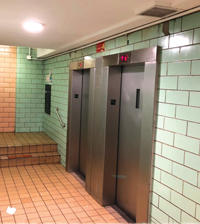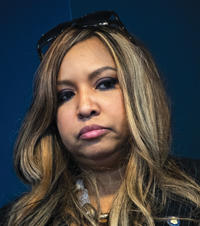The city’s biggest landlord has been plagued by scandals, hazardous conditions and funding shortfalls. And after Mayor Bill de Blasio and HUD Secretary Ben Carson signed a deal in January settling federal litigation over the mismanagement of roughly 176,000 subsidized apartments, the New York City Housing Authority is in for a major shakeup.
The agreement calls for a federal monitor to oversee the agency and requires the city to make an additional $2 billion investment over the next five years to fix and upgrade NYCHA’s 325 housing complexes. It also includes a leadership change, with federal monitor Bart Schwartz helping pick a permanent replacement to chair the country’s largest public housing authority.
In February, de Blasio chose the city’s sanitation commissioner to temporarily run the troubled system, which houses nearly 600,000 New Yorkers across more than 2,418 buildings. Kathryn Garcia was tapped to replace interim chair Stanley Brezenoff amid a lead paint scandal that sparked an investigation by the Department of Justice.
And while NYCHA may have dodged a full federal takeover for now, the city is still grappling with how to raise enough funds while searching for a new chief. In March, de Blasio butted heads with HUD regional administrator Lynne Patton, who criticized him for not naming a replacement sooner. But the mayor said “extraordinarily productive conversations” are underway — which Patton isn’t involved in.
Here’s a look at the key numbers behind the agency’s holdings, private partnerships and the funding it needs for the long road ahead.
$32B

The amount of money NYCHA needs for repairs and renovations over the next five years. In December, the mayor launched a $24 billion plan to help cover the costs, including the sale of $3 billion in air rights and deals with private developers to manage about a third of the agency’s apartments — a move that is projected to bring in nearly $13 billion.
$88M
The cost of lead-based paint testing for roughly 135,000 NYCHA apartments. The agency recently hired seven contractors to inspect about 5,000 to 7,000 apartments per month using portable X-ray devices. Those inspections will continue to the end of 2020.
73

The number of injuries the agency has recorded in its elevators since 2013, including three fatalities, as TRD previously reported. These incidents occurred at a rate of five times more than in other buildings in New York City. The majority of the city’s elevators are maintained by the Department of Buildings, while NYCHA is responsible for conducting inspections, tests and maintenance of its 3,237 elevators.
79%
The portion of NYCHA’s capital projects that are still on schedule, as the city struggles with funding, a recent report from the mayor’s office shows. Among just the projects under construction, nearly 87 percent are on schedule.
104M sq. ft.
The amount of land the agency owns citywide. In Manhattan, NYCHA owns just over 21 million square feet, which covers an estimated 2.2 percent of the borough, with 53,000 apartments across 97 projects.
4

The number of weeks HUD’s Patton stayed at four NYCHA complexes this winter. She said she wanted to get a firsthand look at conditions in the homes and make the city and her bosses more aware. During her stay, Patton and a news crew got stuck in an elevator at the Frederick Douglass Houses — an issue she told the New York Post is “not unfamiliar with NYCHA.”
$522
The average monthly rent at the agency’s housing citywide, according to its 2018 fact sheet. By comparison, the average market-rate rent in Manhattan in February was more than 700 percent higher, at $4,221 a month, per Douglas Elliman.
62,000
The number of NYCHA apartments de Blasio said will be repaired through public-private partnerships. All of the units will be converted to Section 8 housing and remain permanently affordable, he noted. The work will be completed on a rolling basis by 2028, and the maintenance and operations of the properties will be handed over to private management.
Correction: A previous version of this story misreported that NYCHA needs $32 million for repairs and renovations over the next five years. The correct amount is $32 billion.